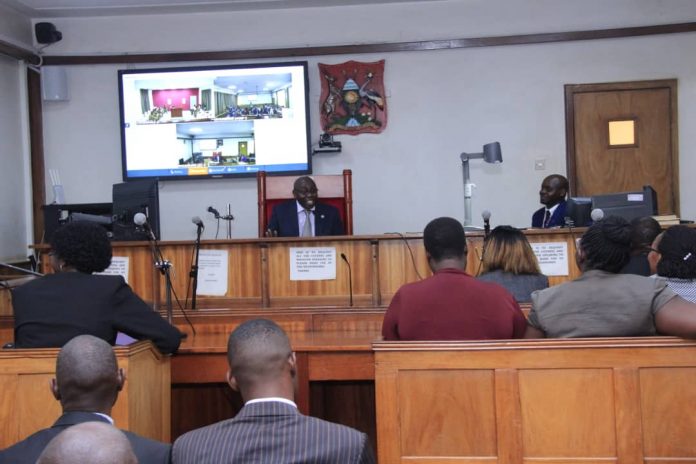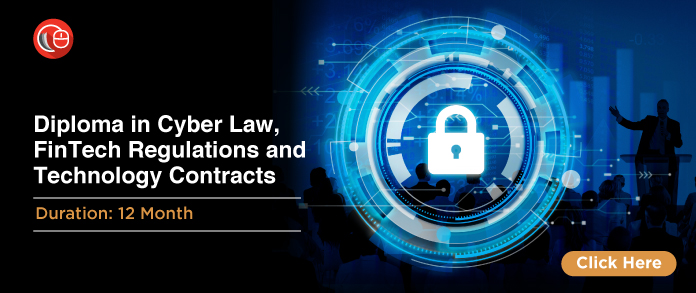This article is written by Dhananjai Singh Rana, Student, BBA LLB(H), Amity Law School Noida This article deals with the analysis of the E-courts which have gained due importance in the light of the pandemic when the physical appearance is quite impossible
Table of Contents
Introduction
The spread of coronavirus and this unprecedented lockdown have posed serious challenges to governments and organizations across the world. The supply of basic amenities includes food, water, clothing, and justice in this modern world. The active role of legal service authorities has ensured a flow of assistance from the state to the people. During this time of public health emergency, legal service authorities took active charge and have responded to address all concerns. In addition to facilitating legal aid to the poor and the weaker sections of the society, National Legal Services Authority(NALSA) has, through its competent workforce, ensured that essentials like food, masks, and sanitizer reach all people. Various helpline numbers and distress numbers are helping people access aid, both essential and legal. Incidents of domestic violence are on the rise, and it is ensured that victims have access to the legal system with the help of the Ministry of Women and Children. In a nutshell, NALSA, as the apex legal service authority in India, stood up to its task and has helped the government to ensure the safety and security of everyone across the geographical boundaries.
The Constitution in the light of COVID
Indian Constitution is a very unique element of our economy that gives various rights to its citizens. Till now the people are cooperative with the current situation amongst restrictions but then how far can we curtail the actions of the free citizens. The constitution also empowers us to a certain set of rights so the question here that needs to be answered is that till when the right of the citizens can be suspended as far as the right to sue is concerned.
Lawmaking in the pandemic
The COVID’19 outbreak has necessitated the governments across the world to take all the necessary steps to manage the world health crisis and its social and economic tremors. During this kind of emergency, legislation needs to be passed to confer exceptionally broad legal powers on the executive government. In this process, the government’s exercise delegated law-making powers rather than lengthy parliamentary procedures to ensure smooth functioning and timely delivery of justice.
By delegation
It is a legal authorization from one person or an organization to another to hold or exercise something which they do not otherwise have. The delegator can establish rules upon the use of the power such as who, when, and how can it be used.
Delegation in a Democracy
Even though the parliament possesses constitutionally designated power but it sometimes ends up designating it. These powers are usually loaned to the executive, cabinet, minister, or even an agency by the legislature. It works as grease on the wheels on the democracy, easing out the burden on the parliament and smoothening the functioning of the economy
Some Common problems we might face in running the economy in the light of COVID which has urged the shift from traditional to the online model of working of the economy
- E-governance
Each policy is discussed and deliberated upon several times and in case a discrepancy is found out, it is discussed and then amended according to the need of the hour and if we switch to e-governance it would be extremely difficult to put forward a point and how will the responsibilities be established in times of need
- Emergency legislation
Another question that needs to be answered is that will the acts passed to control these situations continue to be in force even when the situation normalizes. If yes, how are we going to sync the functioning of the judiciary with that of the legislature and the judiciary and will we not be wasting the time of the judiciary in checking the constitutionality in times to come
- Insufficient relief material
The government is providing relief material to the underprivileged to aid their sustenance but it is still restricted to distribution to citizens beyond 18 years of age so it becomes difficult for them to support a family of 7 with the material provided for a month.
These are also the questions which the authorities need to answer to ensure efficiency out of the economy and recover the loss from the hindrances that have been caused.
The concept of virtual courts
The supreme court has already been exercising the concept of virtual hearings since 2007 but the same has not been implemented on the lower courts which may be done through Article 141which says that the Supreme Court can pass any such order which makes the decision binding on all the subordinate courts and article 142 which gives it the power to pass any judgment in a matter brought before it.
According to the notification by the Supreme Court of India, the courts shall treat matters of the migrant workers, COVID’19, the death penalty, and family matters as urgent. According to the sources, the Delhi High Court has already decided on 7500 cases in the lockdown period.
Advantages
- Safety: The evidence remains secure and safe as there is no human handling of the evidence with the reduced risk of tampering.
- Faster decision: There are faster decision making as the judges can give a decision by just listening to the statements and no delay is caused by the parties and examination of evidence
- Cheap and economical: clients do not have to travel from far and wide which saves both time and money
- Timely hearing: There is no delay by the natural forces so the hearing does not get delayed and timely justice is delivered
Challenges before us
- Open hearing: It is a concept in which the journalists are led to the live proceedings of a courtroom. In India, this concept is still not so prevalent as we have a free and fair hearing by the means of rule of law so there still are no points that suggest that India lacks this element and the media is open to criticize the government. Certain sensitive issues needed to be discrete from the public because India being a multicultural society may hurt the sentiments of some and it might cause a huge tussle.
- Contrary to the rule of law: The rule of law simply means the will of law is above the individuals and the concept of open hearing prevents judicial arbitrariness and restores public confidence in the principles such as equality before the law.
- Live Streaming: The court proceedings are allowed to be telecasted online by way of live streaming held by the supreme court in 2007 but the question is Supreme courts along with a few high courts are equipped to do so but for others, we need to gear up.
Working of Courts
In the times of the pandemic, the courts have shifted to take up only the very important and important matters so the question arises that what are the criteria for deciding the nature of the case. Well, some might say that where the fundamental of life is in question but what about the pleas of people who have lost their means of earnings and don’t know what to do next.
As we see the court is flooded with people on a normal working day the practice of maintaining social distancing still becomes a far-fetched goal-seeking Redressal.
- E hearings: Our law does not permit the recording of the hearings of the court and if we permit it today just to be able to keep a track of the hearing area, we aim, and making a permanent change in the code is a question yet to be answered. In the light of the pandemic situations, the courts are taking up cases through video conferencing so there are very high chances that the words are not put across the way they are intended to since many of those involved in the case are not that familiar with the use of technology.
- Evidence: A most essential component of the hearing is the evidence being produced in the case and this is the component on which the destiny of the case lies and it can not be done through the Internet. One such suggestion would be transmitted through electronic form but with no stringent cybersecurity mechanism how are we going to ensure the safety and credibility of the evidence being recorded in these circumstances
- Judgment: Law as a field is very subjective and emphasizes elaborating every element being mentioned therein and with one-word judgments and mere statements being passed how we are going to establish principles like ratio decidendi and obiter dicta
- Arguments: Law is a profession of expressing which cannot be maintained through online hearing mode as the arguments have to precise and easy to comprehend
- Advocate-driven hearing: With the absence of court staff and parties in the course of hearing the transparency of the hearings might be compromised and the hearings might just be advocate driven and as a result, the hearing might just be merely advocate-driven defeating the very purpose of the courts.
- Cross-examination and examination: It is an essential element of hearing while establishing facts. Keeping in mind that most of those present in courts to give testimonies are not tech-savvy and there are very high chances of manipulation.
- Dispute resolution: Any subject in question is governed by multiple acts so if we say we wish to establish another rule to provide them with Redressal and relief in times of trouble then how are we going to establish it and will it be having a subsequent or an overriding effect and will it be suspending the similar provision in all other acts for the time being in force or not.
The loss to the Majesty of courts in online working
- Well, some might say that court majesty is in question if the existence of e-courts comes into practice and that is because we do not have a robust cyber mechanism that may render the hearing vulnerable.
- Delayed streaming would destroy the effectiveness hence causing a loss to the effectiveness and the decorum.
- The courts would be open to agencies such as the media which can prevent them from giving effective judgments binding on the masses due to the fear of revolt and the whole purpose of having a hearing would be defeated.
- The courts have been instructed to conduct hearing online but India has not yet advanced in technology and signals quality due to which there are call dropping issues and as a result, the video conferencing converts into the telephonic hearing hence losing the transparency.
- Since we do not have a very well-established and secured system in terms of networks in our country it may lead to the breach of confidentiality and then therefore due to the lack of encryption the judiciary is weakened.
- The E-hearings are conducted to ease out the burden on the courts and ensure smooth functioning but due to the lack of established telecom networks systems, if a call drops it automatically renders the hearing to be rendered null
- One of the major questions that remain unanswered in today’s time is the handling of prisoners. The pandemic is affecting prisoners as well because, in the times of social distancing being the need, it becomes extremely difficult to maintain the social distancing in the prisoners with the community living practices. So, if one says that the judiciary is releasing the prisoners based on the fast track hearings. It increases the likelihood of a drop in the quality of the hearings in the courts.
- Impact on the Income: As far as the income is concerned the lawyers and the court staff might find it difficult to draw an income as they are used to draw income from hearings and since there are very limited hearings how are they going to draw their income.
Features that Indian Legislation should aim at achieving
We may also imbibe the practice of enforcing the act to control the on-going situations with the following features:
- The more power is conferred on the executive, the more accountability concerns are needed because of the very high probability of misuse of power.
- Exploring the balance struck between the executive power and accountability in different jurisdictions.
- Understand and explore different dimensions of delegation in the context of a public health emergency
- Map out the different forms and degrees of accountability control included in legislation
- Should understand how courts are an important accountability role in interpreting enabling provisions.
- We may aim at telephonic hearings for cases like theft, motor accident, and medical negligence, etc. to grant bail like the US.
- We can have provisions for the parties to willingly choose to be heard in the video conferencing
In the view of courts
- Independent courts shall be called upon in litigation to play a role in promoting accountability for executive power, enforcing minimum standards.
- Courts can interpret delegation restrictively with the help of presumptions such as the rule of law.
- Can review statutory proportionality test for measures that have been adopted to assess the effectiveness of the same
- Courts also determine whether the measures adopted are valid in respect of the provisions of the constitution such as the rule of law.
Concerns for the new Legislation
- The constitutional and civil liberties implications as that stand the very essence of the economy like India and if that fails we shall be moving to a severe crisis.
- It should not be an emergency itself but more of a mechanism that prevents us from going into it with more civil liberties, fundamental and constitutional rights ensure in the economic functioning
- The legislation should ensure the balance is struck between the organs of the government and no one becomes so powerful that it takes undue advantage of the situation and cause destruction
- It should not damage the health of democracy such as the rule of law, human rights, etc.
- The person receiving the power can only lawfully use the power according to the terms which may be expressed or implied and can be revoked any time either on breach of terms of the agreement or at will.
Impact of ODR
Online Dispute Resolution (ODR) has a lasting impact when it comes to the speedy disposal of disputes. The cost-effectiveness of the ODR mechanism is unparalleled. Concerning arbitration, traveling and lodging costs are hugely curtailed if the dispute can be resolved through ODR.
During the COVID-19 lockdown, all disputes are at a standstill and the courts are only taking urgent cases for hearing. If all commercial cases that do not qualify as so-called “urgent matters” were attempted to be resolved through ODR, all parties concerned would be happy and satisfied with the results, in my opinion.
Also considering the social aspect, we have several hard-working young lawyers who are currently sitting at home and out of work because the courts are shut. ODR hearings could also become their source of bread during this lockdown.
However, that doesn’t take away from the obvious concerns that the ODR system currently faces.
Conclusion
We will have to come through, withstand, and outlast the pandemic with a solution-oriented outlook. Infrastructure will have to be rapidly ramped up because that is currently the best way forward, precisely written arguments and oral hearings in limited time bring quality to the hearings. Virtual courts have the potential to streamline the court process. While the transformation may start with technologically enabled courts and there also a need to evolve other judicial advancements
There will also be big, bold, and fundamental changes to the profession. The art of the oral argument being the most impactful part of litigation will now be substituted by structured and precise pleadings, supported by strategically crafted written submissions. The Judiciary may also need to fundamentally reinvent itself with a different skill set to discharge judicial functions in technology.
References
- https://www.districts.ecourts.gov.in/sites/default/files/WORKSHOP%20IV%20NOTES%20%282%29.pdf
- https://www.bloombergquint.com/opinion/gavel-to-click-covid-19-poised-to-be-inflection-point-for-online-courts-in-india
- https://www.thehindu.com/opinion/lead/the-epidemic-and-ensuring-safety-in-courts/article31552305.ece
LawSikho has created a telegram group for exchanging legal knowledge, referrals and various opportunities. You can click on this link and join:
 Serato DJ Crack 2025Serato DJ PRO Crack
Serato DJ Crack 2025Serato DJ PRO Crack











 Allow notifications
Allow notifications


